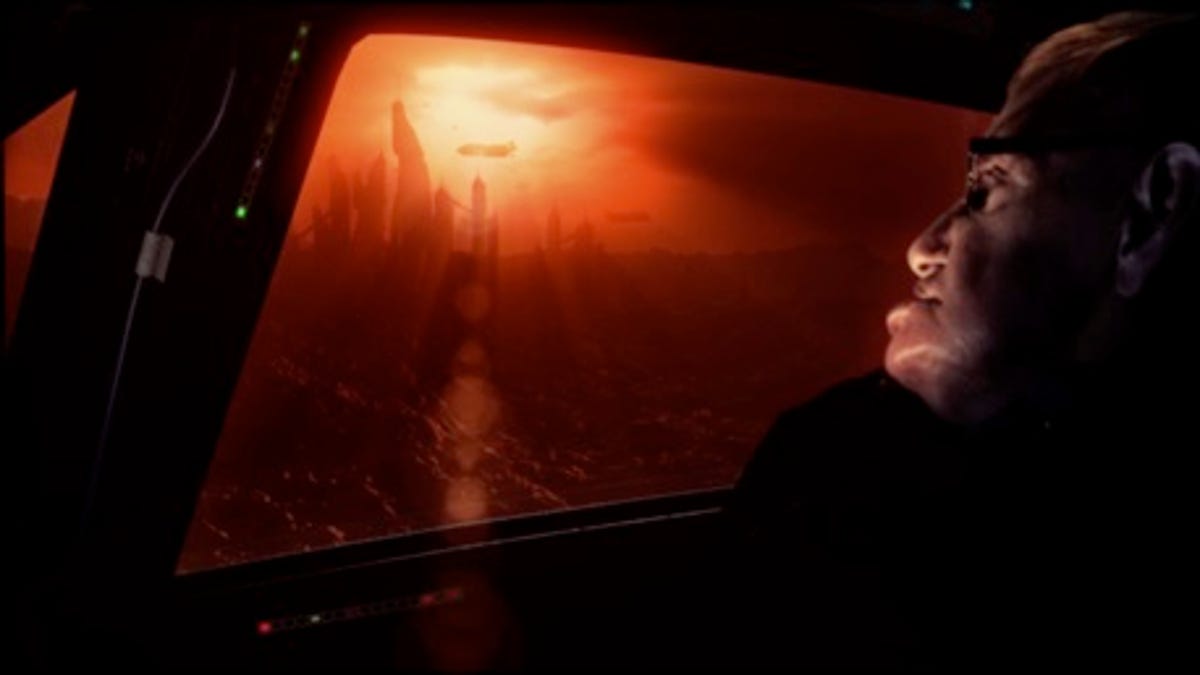Stephen Hawking wants to find aliens before they find us
The famed cosmologist is all in on searching for signals from E.T., but warns that we should be careful about inviting aliens over.
Stephen Hawking is again warning about announcing our presence to any alien civilizations that might be out there, especially those that could be more technologically advanced.
In his new half-hour program "Stephen Hawking's Favorite Places" on science-themed subscription service CuriosityStream, the world's most famous theoretical physicist flies by the potentially habitable exoplanet Gliese 832c in a CGI spaceship as part of his hypothetical dream itinerary for a tour of the universe.
The super-Earth is only 16 light-years away and just the sort of world the Hawking-supported Breakthrough: Listen initiative hopes to scan for signs of alien signals using our most sensitive radio telescopes.
"If intelligent life has evolved (on Gliese 832c), we should be able to hear it," he says while hovering over the exoplanet in the animated "U.S.S. Hawking." "One day we might receive a signal from a planet like this, but we should be wary of answering back. Meeting an advanced civilization could be like Native Americans encountering Columbus. That didn't turn out so well."
It's a sentiment Hawking has expressed before. In fact, he's even used the same metaphor in other television programs over the years.
Hawking manages to be both worried about exposing our civilization to aliens and excited about finding them. He supports not only Breakthrough: Listen, but also Breakthrough: Starshot, another initiative that aims to send tiny nanocraft to our closest neighboring star system, which was recently found to have an Earth-like planet.
Not everyone agrees with Hawking that we should try to keep ourselves hidden from potential extra-terrestrial conquering races. Doug Vakoch, president of METI International, which is dedicated to researching, composing and sending messages from Earth to potential alien civilizations, explained on a recent CraveCast that we've already revealed ourselves through the myriad radio, television and other signals we've been sending out for nearly a century.
Ultimately, though, the argument over whether to reach out to E.T. could be a moot point, if, as some believe, aliens have already been in touch and visiting Earth for centuries.


